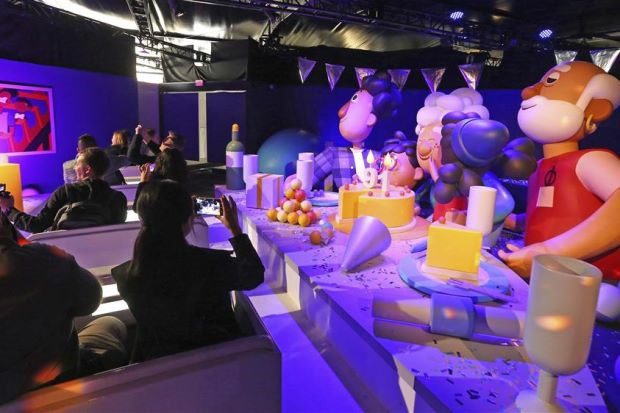
Why brands should invest more in Experiential Marketing – and how Advantage can help
January 21, 2019
 Google’s The Ride at CES allowed riders to experience Google Assistant’s capabilities (AP Photo)
Google’s The Ride at CES allowed riders to experience Google Assistant’s capabilities (AP Photo)
With the rise of smartphones and social media over the pastdecade, brands have never had more direct access to connect with theirconsumers. However, when every brand is doing it, the competition for consumerattention has never been more challenging.
That's where experiential marketing comes in. It can standon its own or it can play a key role in an integrated marketing campaign.Either way, it allows brands to take their product and messaging directly tothe consumer in a way that no other form of marketing can.
In fact, according to the EventTrack 2018survey, 85% of consumers are likely to purchase after participating in eventsand experiences, while 91% feel more positively about brands after attendingevents and experiences.
With statistics like that one has to wonder why brands don’tallocate more of their marketing budget to experiential. Experiential has been slowlygaining a larger portion of marketing budgets over the past few years, to besure, but evidence suggests that it deserves an even larger share. Here are afew reasons.
1. Experience is the best teacher
We’ve all seen quotes such as “Collect moments, not things”or “Have stories to tell, not stuff to show.” Many of us have probably postedsomething similar on social media. But that sentiment applies to marketing too.Of course, the ultimate goal for a brand is to convert a consumer, whether itbe to purchase their product or download their app or subscribe to theirnewsletter – and thus, turn the consumer toward their “things” – but doing sothrough experiences is more effective than other channels.
Per Staistica’s influence of branded events on consumerpurchase intent study,93% of consumers claimed that live events had a larger influence on them thanTV ads. Experiencing a brand or a product leaves a longer lasting impressionthan simply being told about the brand or product.
Perhaps the best argument comes from novelist Paulo Coelho,who wrote, “People never learn anything by being told, they have to find outfor themselves.”
As consumers have become more connected to each other andgained more influence in the purchasing cycle through online reviews, they’vecome to see right through marketing messages. Instead, they are relying more ontheir own experiences with products and the experiences of those they know andtrust.
Robert McKee and Thomas Gerace described this in their 2018book Storynomics: “Consumers comparemarketing promises with their real-world experience, and when the two don’tline up, they mock the brands that played them with scathing product reviews,public tweets, and Facebook posts. Through decades of false promises, marketershave trained consumers to distrust advertising.”
Traditional forms of marketing still have their place, butwhen a consumer can see, touch, feel, taste, and hear a product in person theycan make up their own mind about the product. That doesn’t mean the branddoesn’t have any influence, however. The brand can – and should – craft apersuasive message to help guide the consumer to the brand’s desired outcomeduring this experience. By letting the consumer experience before purchase,they not only give the consumer a sense of authority, they also build brandaffinity.
2. Even Google is doing it
Google is one of the world’s foremost technology companies,boasting the most-visited website in the world, and generating most of itsrevenue from advertising. So it would be easy to assume the Internet giantwould focus exclusively on digital advertising for its new products.
That wasn’t the case last week at the Consumer ElectronicsShow in Las Vegas. To showcase its Google Assistant product, Google stole theshow by using their massive booth space to take consumers through a three-minuteDisney-like ride. The ride, which Google affectively named The Ride,carried consumers through what some have likened to Disney’s famous It’s aSmall World ride, and showcased how Google Assistant can improve variousaspects of daily life in the process.
From routing you around a traffic jam or bad weather tohelping you find a bakery or recipes to simply taking a selfie, the ride tookconsumers through a day in the life of a cartoon-like dad. It even included interactivescenes for those waiting in line to set the tone. Each scene let consumersexperience how Google Assistant can improve the everyday moments of their life.
Even if you weren’t actually at CES, chances are you’veheard about it by now. New outlets and attendees alike haveshared their experiences and opinions of The Ride and CNET debatedwhether Google or Amazon won CES.
That leads to my third point.
3. Experiential should simply be a startingpoint
When done right, the actual experience should just be thestarting point in the conversation between a brand and the consumer. It shouldconnect consumers to your brand and turn them into brand evangelists.
How?
By designing an activation that gives the consumer theone-on-one experience of – at the base level – tasting a sample, getting theirhands on the product, or receiving a demo. These experiences when done in a creativeand engaging way can hook the consumer on your brand, result in them to sharingcontent related to the experience (user generated content), and encourage themto advocate for your brand to their family, friends, and social network.
According to EventTrack, 98%of consumers create digital or social content at events and experiences and100% of them share that content. Additionally, 72%of consumers say friends’ posts about branded experiences make them morelikely to purchase from that brand.
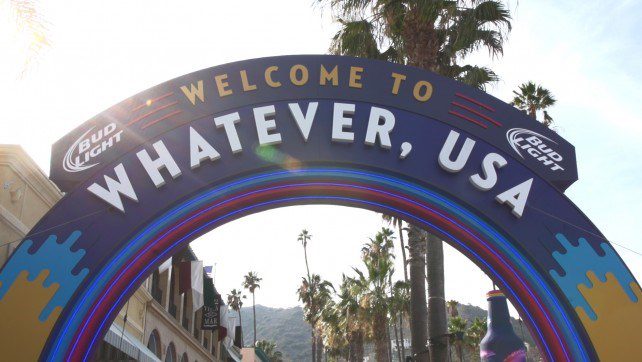
One high-profile example of this was Bud Light’s Up forWhatever campaign in 2014, which turned Crested Butte, Colo. into the fictionalWhatever, USA and flew 1,000 unsuspecting consumers to town for a weekend ofspontaneous fun. Unique experiences such as painting with Shaq or ice creamserved by Vanilla Ice led to 37,000 pieces of unique content being shared onsocial media, which was the ultimate goal of the campaign. Only 1,000 consumersattended, but more than 15 million people viewed content via Facebook andTwitter that came out of it.
It was so effective that when they recreated it with WhateverUSA 2.0 year later, it received 1.7 million auditions, which represented 5% ofthe total millennial population.
The two examples used — Google and Bud Light – are two hugebrands, but it doesn’t take a million-dollar budget to produce an effectiveexperiential program. I have managed successful experiential programs forsmaller brands on smaller budgets like Kettle Brand, Sea Cuisine, Welch’s, andEvolution Fresh that grew market share, increased brand awareness and affinity,and drove sales.
One way to take your brand to the consumer is with amarketing trailer. That’s where AdvantageTrailer comes in. With 30 years of experience, we’ve customized trailersfor brands and agencies alike. Whether you are looking for a stage trailer, apop-up trailer, or a food trailer, our trailers range in size and cost and canbe fully customized to suit your brand. There’s no limit to what we can do. Webuild dreams.
At the same time, we also understand the power ofexperiential marketing because we’ve been in your shoes. We’ve answered tobrand-side clients; we’ve managed experiential programs. We get it. And that’swhat makes us more than just another trailer vendor. We deeply care about thesuccess of your program because we’ve been there.
As you build out your 2019 marketing programs, please give us a call at 630-524-2029 or contact us at marketing@advantagetrailer.comto discuss how we can serve you. Located just outside Chicago we’re ideallylocated for Chicago-based agencies and brands, as well as marketing programsthat launch in the Midwest.
More From Our Blog
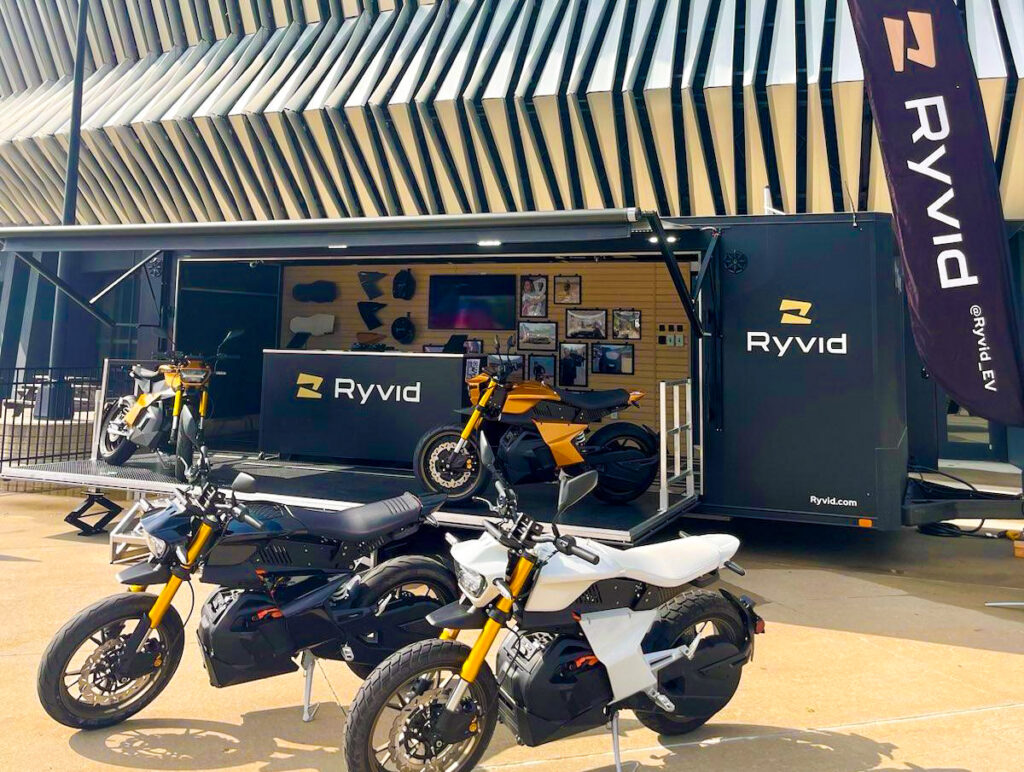 Advantage Trailer 2023 Trailer Sales Year in ReviewAdvantage Trailer sold trailers to 31 different states in 2023, but 66% of our sales were in-state. Here’s our 2023 Year in Review.Read More
Advantage Trailer 2023 Trailer Sales Year in ReviewAdvantage Trailer sold trailers to 31 different states in 2023, but 66% of our sales were in-state. Here’s our 2023 Year in Review.Read More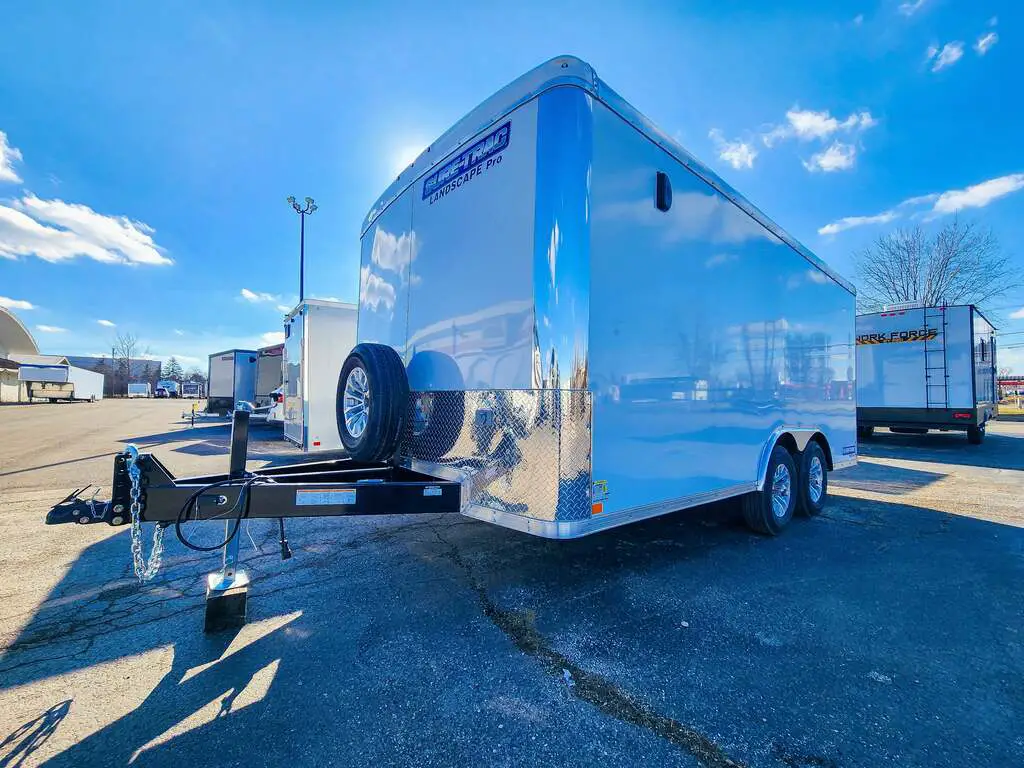 Investing in Quality: Why Cheap Landscape Trailers Could Cost You More in the Long RunInvesting in quality landscape trailers is crucial for local landscape and lawn service companies aiming for long-term success. While cheap landscape trailers may seem appealing initially, they often come with hidden costs and compromises that can impact efficiency and durability in the long run.Read More
Investing in Quality: Why Cheap Landscape Trailers Could Cost You More in the Long RunInvesting in quality landscape trailers is crucial for local landscape and lawn service companies aiming for long-term success. While cheap landscape trailers may seem appealing initially, they often come with hidden costs and compromises that can impact efficiency and durability in the long run.Read More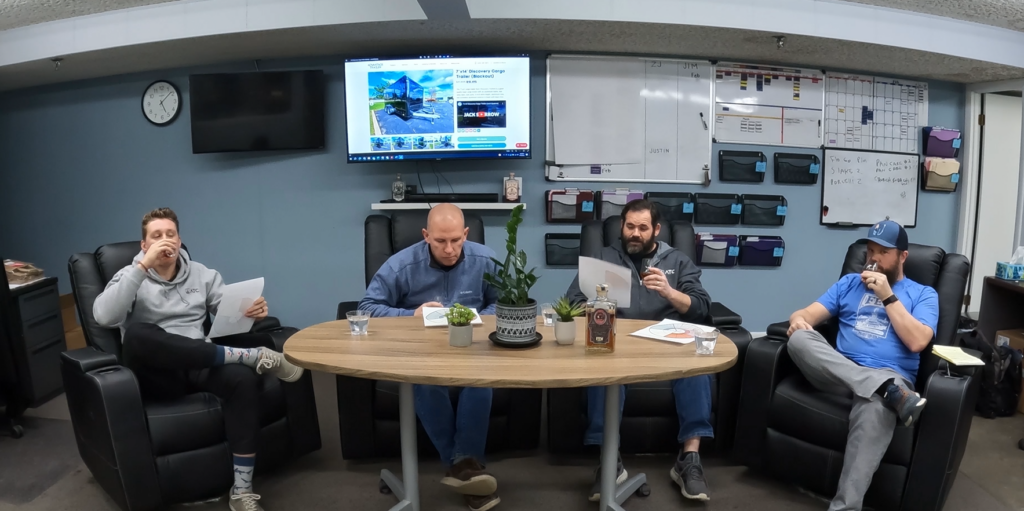 Advantage After Hours Episode 5: FEW Spirits All Secrets Known Bourbon ReviewIn Episode 5 of Advantage After Hours, we taste and review the Alice in Chains ‘All Secrets Known’ tequila-finished bourbon from FEW Spirits.Read More
Advantage After Hours Episode 5: FEW Spirits All Secrets Known Bourbon ReviewIn Episode 5 of Advantage After Hours, we taste and review the Alice in Chains ‘All Secrets Known’ tequila-finished bourbon from FEW Spirits.Read More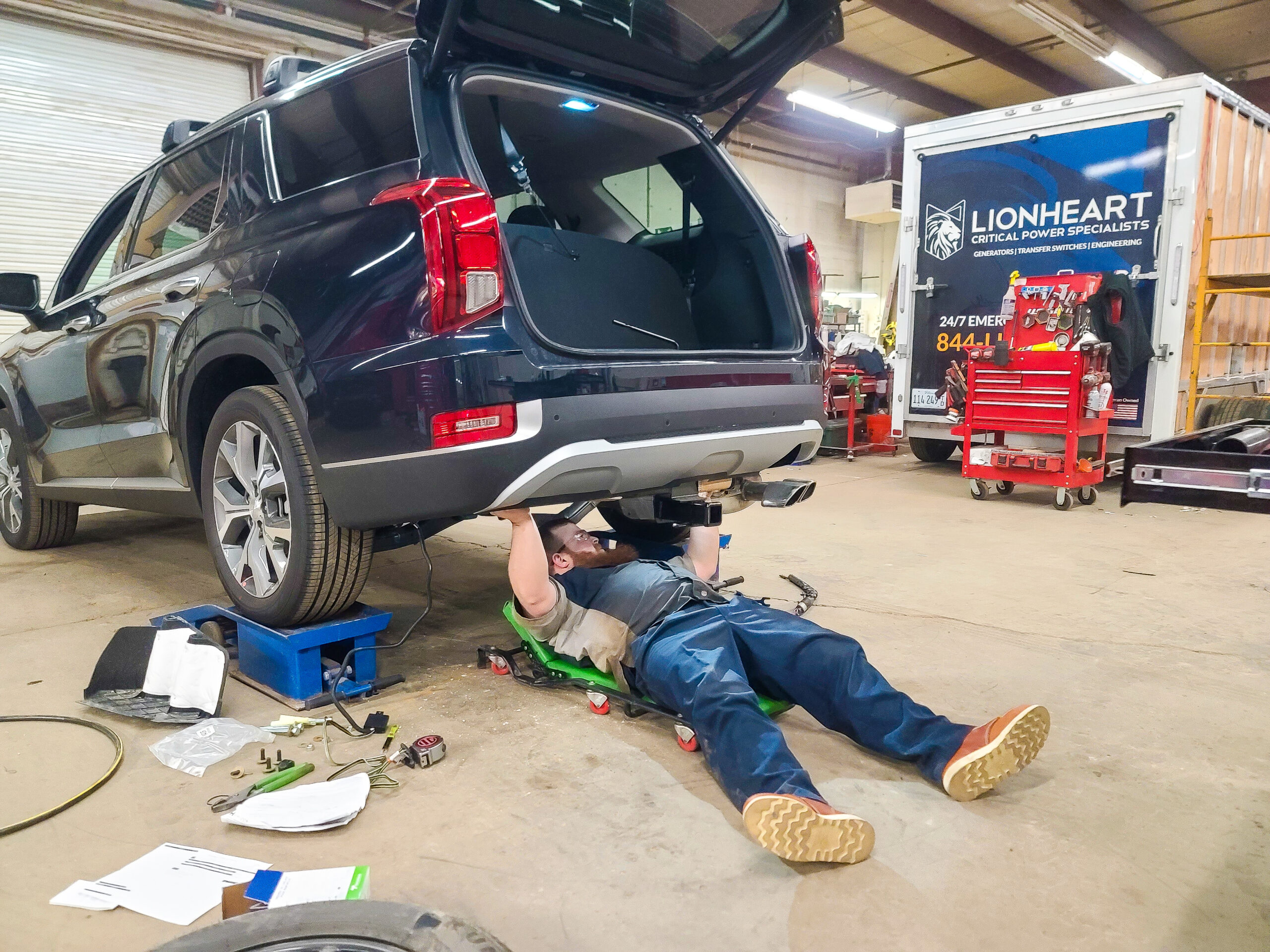 Going the Extra Mile: The Perks of Having a Hitch on Your VehicleHaving a hitch on your vehicle opens up a world of possibilities, from towing trailers to mounting bike racks or cargo carriers.Read More
Going the Extra Mile: The Perks of Having a Hitch on Your VehicleHaving a hitch on your vehicle opens up a world of possibilities, from towing trailers to mounting bike racks or cargo carriers.Read More